Hey there! Zain here.
With 2025 just less than 3 weeks away, I’m super excited to share something that’s going to change your research paper writing game forever.
Let me be upfront with you — while I’m part of the Blainy team, this isn’t going to be just another biased review article.
Yes, Blainy is an AI writing tool, and yes, it’s on our list. But here’s the deal — I’ve personally tested dozens of AI research paper tools, including our competitors, to bring you the most honest comparisons possible.
You know that dreaded feeling when you’re facing a blank document, trying to start your research paper? I’ve been there, and it’s NOT FUN.
But here’s the exciting part — there are some amazing AI tools (including, but not limited to Blainy) that can make this process so much easier.
Here’s something wild: I spent 142 hours (yes, I counted!) testing and reviewing every significant AI research writing tool out there. I wanted to see how each tool performs in real-world academic writing scenarios — including comparing them with our own platform.
Quick question: What if you had a brilliant assistant that could:
- Dig up relevant research papers in seconds
- Help structure your ideas logically
- Generate accurate citations automatically
- Polish your writing to academic standards
Sounds too good to be true? These AI tools actually deliver on these promises.
In this article, I’m sharing the 11 best AI tools for research paper writing in 2025. I’ll show you exactly what each tool does best — their strengths, limitations, and real-world applications. And yes, I’ll tell you where Blainy shines and where other tools might be a better fit for your specific needs.
Whether you’re cramming for your thesis or working on your next academic publication, this guide will help you choose the right tool for your needs.
Ready to revolutionize how you write research papers? Let’s jump right in! 🚀
11 Best AI Tools for Research Paper Writing in 2025
Before I dive into these tools, here’s a quick reality check: I’ve tested over 30 AI writing tools in the past month. Some were amazing, others… well, let’s just say they didn’t make this list.
What makes these 11 tools special? They actually deliver results. No fluff, no empty promises — just practical features that make research paper writing easier.
Here’s your power-packed lineup for 2025:
- Blainy — Our AI academic writing assistant
- SciSpace — Your research paper companion
- Otter — The transcription genius
- Semantic Scholar — Your smart paper finder
- Consensus — The research summarizer
- Scholarcy — Your paper breakdown expert
- Quillbot — The paraphrasing pro
- ResearchRabbit — Your citation explorer
- Scite.ai — The reference checker
- ProofHub — Your research organizer
- ChatGPT — The versatile writing assistant
Quick Question: Why these specific tools?
Each tool serves a unique purpose in the research writing process. Some help with finding sources, others with writing and editing, and a few do it all. I’ve personally used each one for different research papers, and they’ve all earned their spot on this list.
Here’s what’s coming up: I’ll break down each tool’s:
- Standout features
- Use cases
- Pricing (including free options)
- Pros and cons
Ready to discover which tool fits your research needs? Let’s dive into the details!
Note: Prices and features mentioned are current as of December 2024. I’ll keep updating this article as these tools evolve.
Blainy — The All-in-One AI Research Assistant
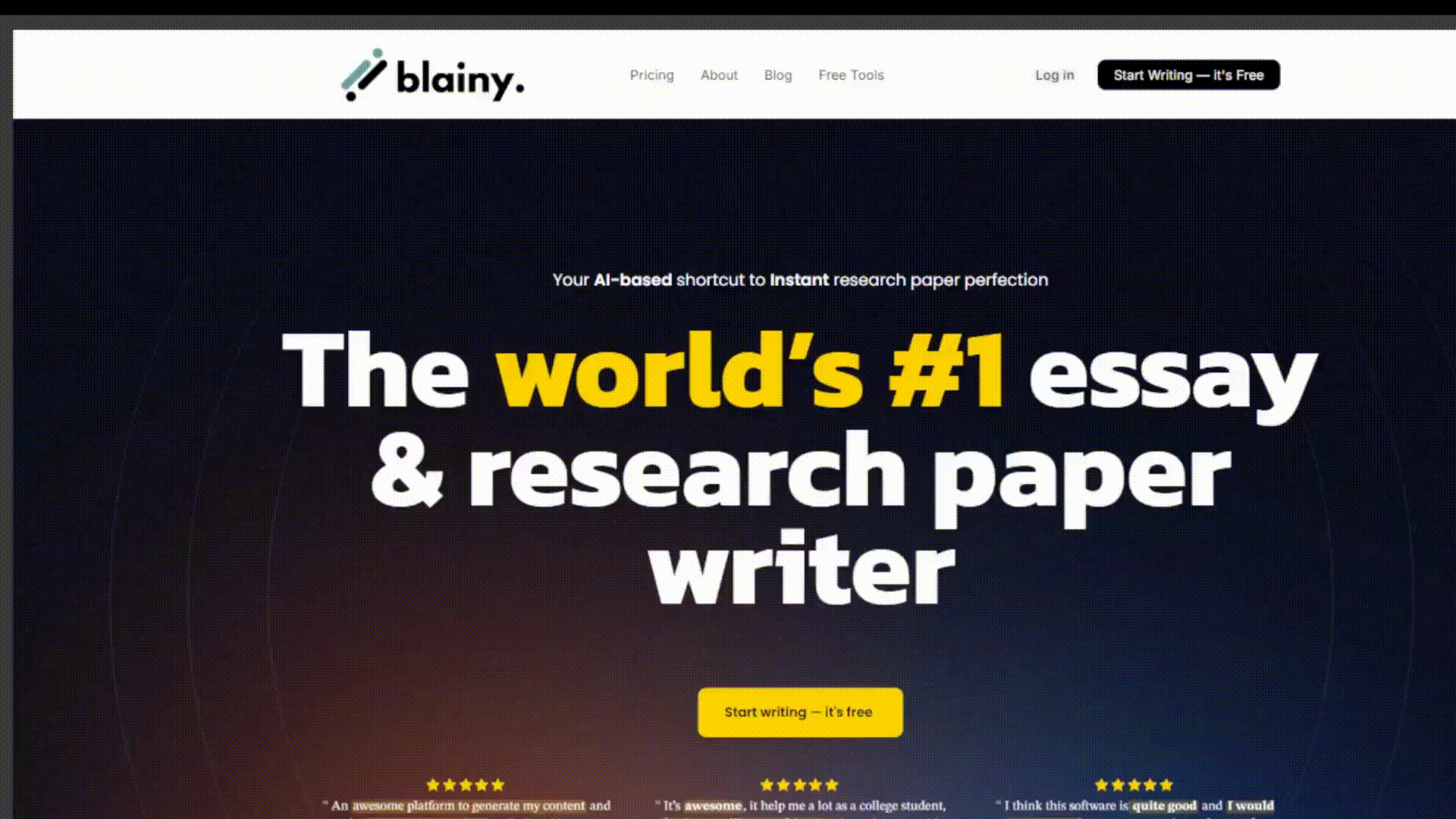
Let’s kick things off with Blainy — and no, I’m not just putting it first because I work here. This tool has genuinely impressed me with its academic writing capabilities. With over 37000 active users, Blainy’s growth shows how much researchers trust it.
What Makes Blainy Stand Out?
I’ve used Blainy for everything from quick essay outlines to complex research papers. What caught my attention? It actually understands academic writing standards. No more generic AI-generated fluff!
Key Features I Love:
- PDF Chat — Chat with your document (articles)
- AI Essay Writer — Generates research-backed content
- Literature Review Generator — Saves hours of manual work
- Citation Management — Handles multiple citation styles (IEE, MLA9, APA7, Harvard)
- Thesis Statement Generator — Creates focused, arguable statements
- AI Summarizer — Condenses complex research papers
- Summarizing & Paraphrasing Tool — Helps avoid plagiarism
What’s Different About Blainy’s AI?
Unlike generic AI writers, Blainy is specifically trained on academic papers and research content. It understands scholarly writing conventions and can maintain academic tone.
Pricing (As of December 2024):
Free Plan:
- 200 AI words daily
- ALL PREMIUM FEATURES
- AI Suggestions
- Essay expander
- Sentence & paragraph expansion
- AI Essay outline generation
- AI Summarizer
- PDF Chat
- In-text Citation
- Paraphrasing tool
Unlimited Plan ($12/month billed annually):
- UNLIMITED AI WORDS
- ALL PREMIUM FEATURES (as mentioned above)
- Priority support
Who Should Use Blainy:
- Students tackling essays and research papers
- Researchers working on academic publications
- Anyone needing help with scholarly writing
Watch Out For:
- Free plan has daily word limits
- Focuses specifically on academic writing
- Don’t have a Dark Mode (yet!).
Bottom Line: While there are many AI writing tools out there, Blainy stands out for serious academic work. It’s not just about generating content — it’s about creating properly structured, WELL-RESEARCHED academic papers.
SciSpace — Your Smart Research Navigator

Let me tell you about SciSpace — a tool that’s changing how we handle academic research.
Ever spent hours searching for relevant research papers, only to find they weren’t quite what you needed?
That’s exactly what SciSpace solves with its semantic search engine
(Want to know more about academic search engines, here’s a list of best academic research search engines)
Now, back to the article:
Key Features I’ve Tested:
- Smart Search Engine — Understands context, not just keywords
- AI Paper Summaries — Breaks down complex papers
- Citation Tools — Manages references automatically
- PDF Reader — Lets you annotate and highlight
- LaTeX Editor — Perfect for technical papers
- Plagiarism Checker — Keeps your work original
The Search Experience:
Type in your research topic, and SciSpace doesn’t just match keywords. It actually understands what you’re looking for.
For example, searching “AI ethics” brings up papers about moral implications, regulatory frameworks, and real-world applications — not just articles with those exact words.
Pricing (Updated for 2025):
Free Tier:
- Basic search features
- Limited summaries
- Basic PDF reader
Premium ($12/month annually or $20/month):
- Full semantic search
- Unlimited summaries
- All premium features
Institution Plan ($8/user/month billed annually):
- Perfect for research teams
- Bulk licensing options
What’s Great:
- Intuitive interface
- Powerful search capabilities
- Time-saving summaries
- Free tier available
Watch Out For:
- Premium features need subscription
- Takes time to master all features
- Might be too much for casual use
Bottom Line: SciSpace is a powerful research companion. While it has a learning curve, its semantic search and AI summaries make it worth the effort for serious researchers.
Otter — the best transcription tool
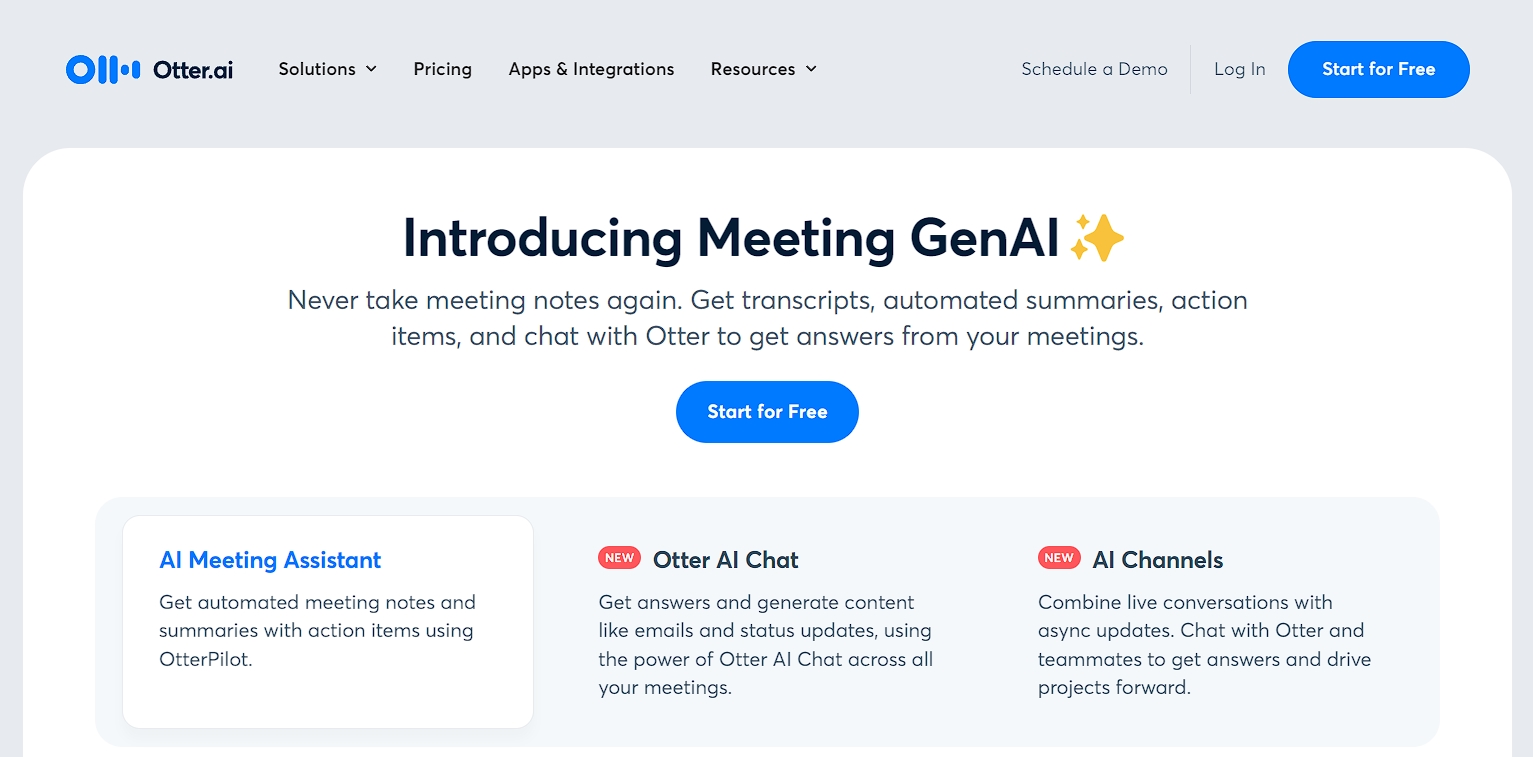
Otter — a tool that’s transformed how to handle research interviews and lectures.
Ever struggled to take notes during interviews or focus groups while trying to maintain eye contact?
Otter solves this by transcribing everything in real-time, letting you focus on the conversation.
What Otter does best:
- Real-time Transcription — Captures every word
- Smart Summaries — Highlights key points
- Speaker ID — Tags different speakers
- Searchable Archive — Find specific mentions
- Meeting Integration — Works with Zoom, Meet
- Mobile App — Record anywhere
Real-World Uses:
- Research interviews
- Focus group discussions
- Lecture recordings
- Team meetings
- Conference calls
- Research presentations
Pricing (2025 Rates):
Free Basic:
- 300 minutes monthly
- Basic features
Pro ($8.33/month annually):
- More minutes
- Advanced features
- Better search
Business ($20/user/month):
- Team features
- Custom vocabulary
- Admin controls
What’s Great:
- Accurate transcriptions
- Easy to use
- Works offline
- Quick summaries
Watch Out For:
- Not a complete research tool
- Limited free minutes
- Needs good audio quality
Bottom Line: Otter isn’t a complete research paper tool, but it’s invaluable for capturing and organizing research conversations. Perfect for qualitative researchers and anyone conducting interviews.
Remember: Always get consent before recording conversations, and check your institution’s privacy policies.
Semantic Scholar — The Smart Research Discovery Engine
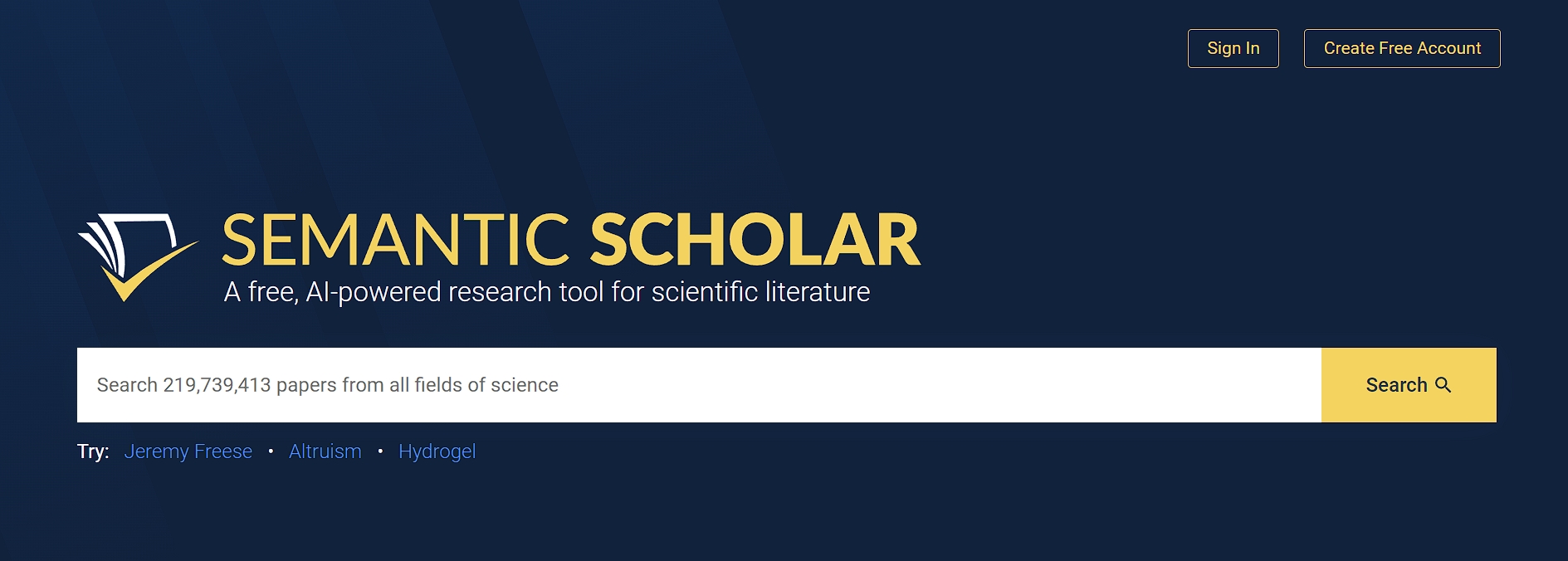
Let me share my experience with Semantic Scholar — a game-changer in finding relevant research papers.
Ever felt lost in a sea of research papers, unsure which ones really matter?
Semantic Scholar uses AI to show you the most influential papers and how they connect.
Key Features:
- AI-Powered Search — Finds related papers
- Citation Analysis — Shows paper impact
- Author Profiles — Tracks researcher influence
- Paper Summaries — Quick research overview
- Research Feed — Personalized updates
- Mobile App — Research on the go
What Sets It Apart:
The search goes beyond keywords. It understands concepts and relationships between papers. When you search “machine learning ethics,” it shows you papers that are conceptually related, even if they don’t use those exact words.
Best Uses:
- Literature reviews
- Finding key papers
- Tracking research trends
- Following top authors
- Discovering new research
- Building bibliographies
Pricing:
Completely Free!
- All features available
- No hidden costs
- No premium tier
What’s Great:
- Smart search technology
- Free access
- Clean interface
- Mobile friendly
- Regular updates
Watch Out For:
- Not all journals covered
- Registration needed for some features
- No writing tools included
Bottom Line: Semantic Scholar is essential for research discovery. While it won’t write your paper, it’ll help you find the right sources to cite. Perfect for starting your research journey.
Remember: Always verify paper availability through your institution’s subscriptions.
Consensus — Your Scientific Question Answerer
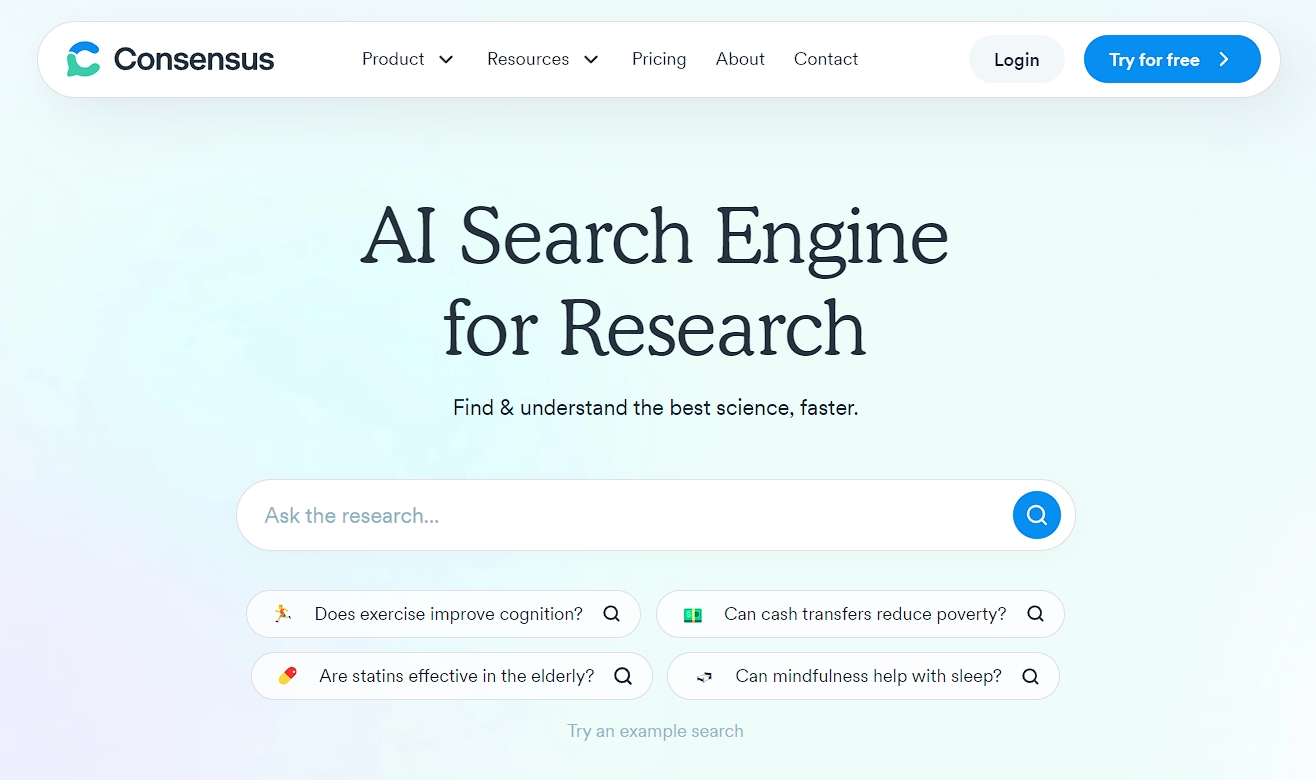
Let me tell you about Consensus — an AI tool that’s revolutionizing how we find scientific answers.
Ever spent hours searching through papers just to answer one research question?
Consensus cuts this time down to minutes by analyzing thousands of papers instantly.
Key Features:
- Question-Answer Search — Gets straight answers
- Evidence Summaries — Shows key findings
- Source Links — Tracks original papers
- Consensus View — Shows agreement levels
- Research Feeds — Updates on topics
- Team Features — Helps collaboration
How It Works:
Type in your research question, and Consensus searches through scientific papers. It pulls out relevant information and shows you what researchers agree on. For example, ask “How does caffeine affect memory?” and get evidence-based answers with citations.
Pricing:
Free Tier:
- Basic searches
- Simple summaries
- Limited questions
Pro ($9.99/month annually):
- Unlimited searches
- Full summaries
- Advanced features
Team ($9.99/user/month):
- Collaboration tools
- Shared workspaces
- Team analytics
What’s Great:
- Quick answers
- Clear evidence
- Source transparency
- Time-saving
- User-friendly
Watch Out For:
- Some topics not covered
- Best features need subscription
- Not a writing tool
Bottom Line: Consensus is perfect for quick research insights. While it won’t write your paper, it’ll help you understand what scientists agree on – fast.
Remember: Always verify findings in the original papers for critical research.
Elicit — Your AI Research Assistant
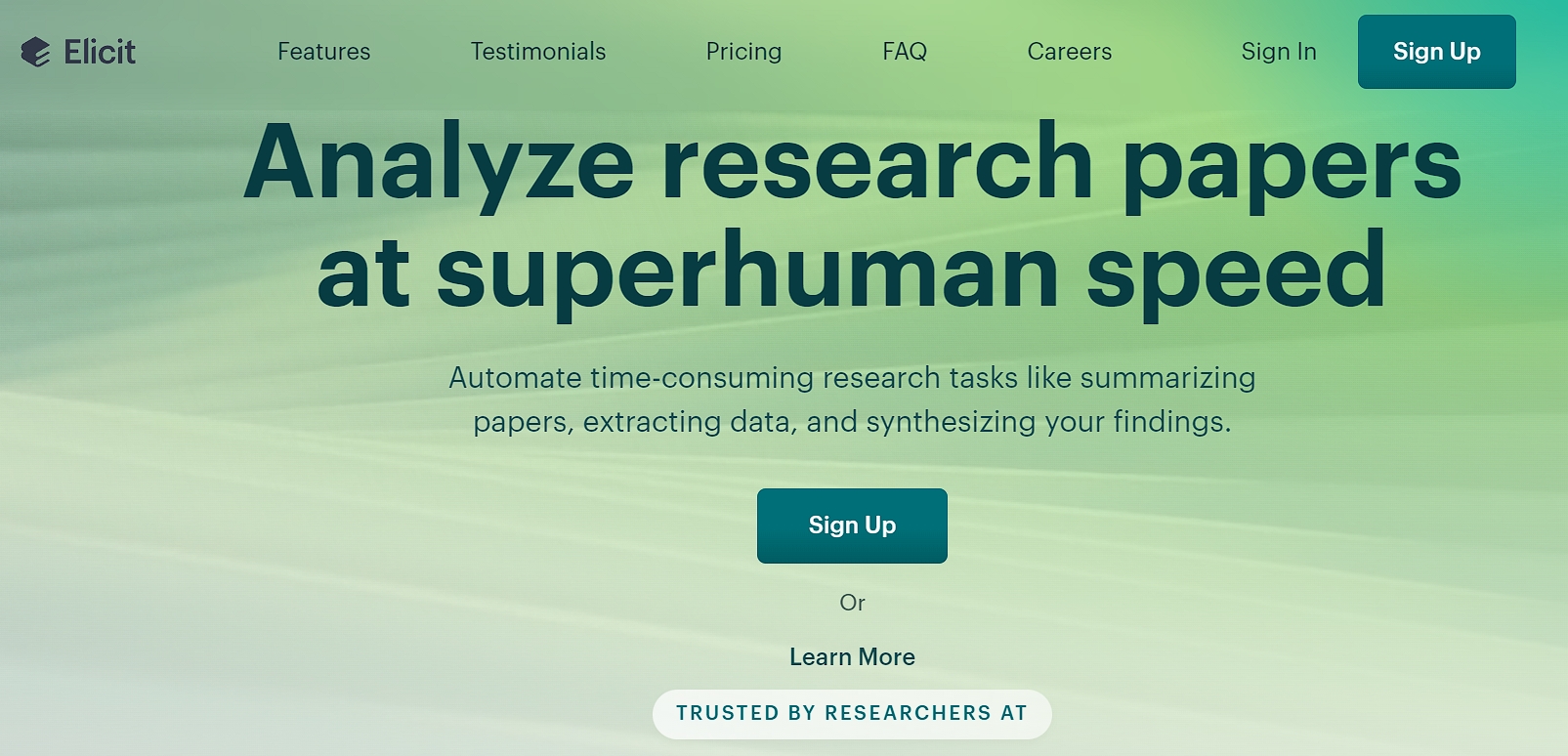
Let me share my experience with Elicit — a tool that’s transformed how I approach research questions.
Ever struggled to find the right papers or extract key information quickly?
Elicit does this automatically, saving hours of manual work.
Key Features:
- Smart Search – Finds relevant papers
- Info Extraction – Pulls key findings
- Question Helper – Guides research queries
- Gap Finder – Shows research opportunities
- Visual Maps – Shows research landscapes
- Team Tools – Enables collaboration
Pricing:
Free Tier:
- 5000 credits
- Basic features
- Limited searches
Plus ($10/month):
- Unlimited credits
- All features
- Priority support
Enterprise:
- Custom solutions
- Team features
- API access
What’s Great:
- Time-saving
- Smart search
- Clear summaries
- Research insights
- Easy to use
Watch Out For:
- Limited free credits
- Learning curve
- Some fields not covered
Bottom Line: Elicit is a powerful research assistant. It won’t write your paper, but it’ll make finding and understanding research much easier.
Remember: Always verify extracted information in original papers for accuracy.
Scholarcy — Your Research Paper Summarizer
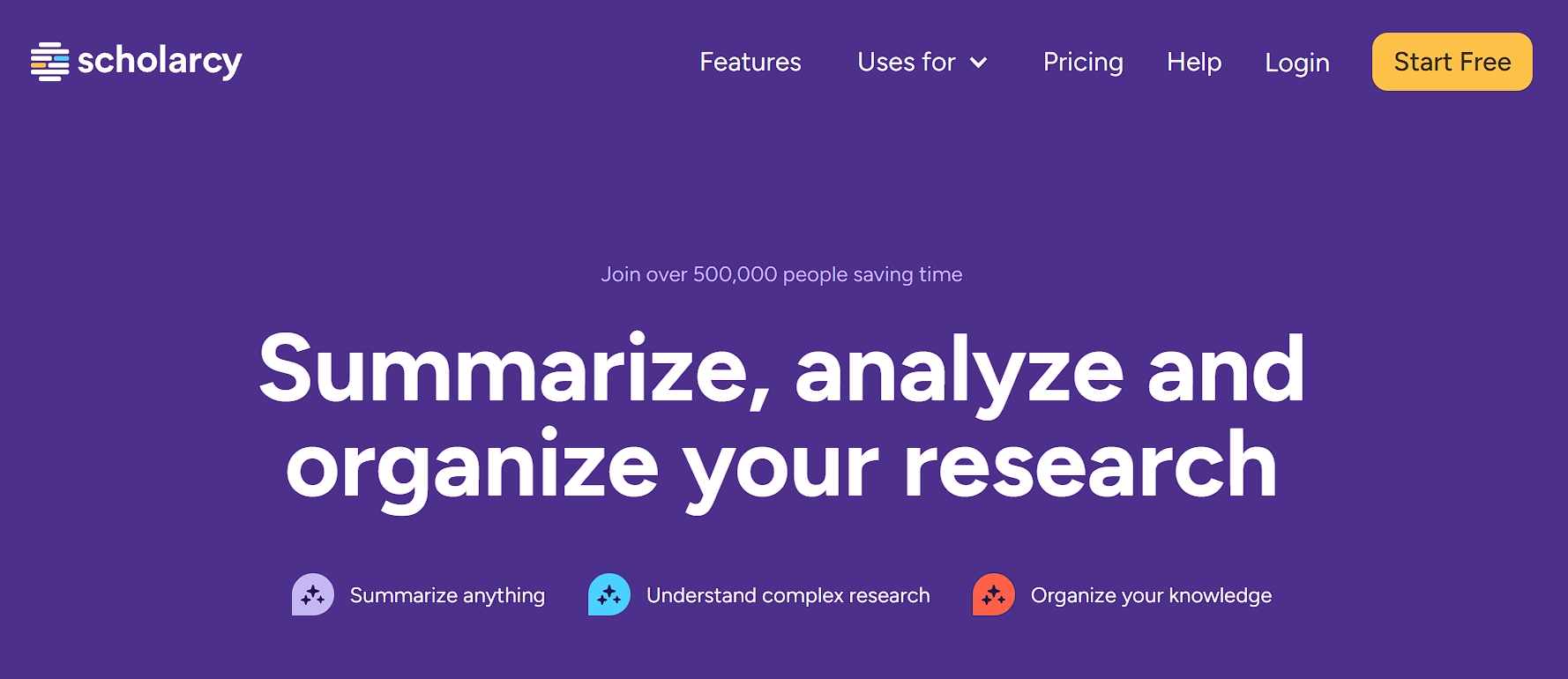
Let me tell you about Scholarcy — a tool I use daily to break down complex research papers.
Ever felt overwhelmed by long, dense research papers?
Scholarcy turns them into bite-sized, digestible summaries and flashcards.
Key Features:
- Smart Summaries — Extracts main points
- Flashcards — Creates study aids
- Reference Lists — Pulls citations
- Bibliography Maker — Formats references
- Browser Extension — Quick access
- Bulk Processing — Handles multiple papers
Pricing:
Free Plan:
- 3 summaries daily
- Basic features
- Limited access
Scholarly Plus ($4.99/month):
- Unlimited summaries
- All features
- Priority support
What’s Great:
- Quick summaries
- Easy learning
- Time-saving
- Clear format
- Reference help
Watch Out For:
- Complex papers need review
- Limited free version
- Not a writing tool
Bottom Line: Scholarcy won’t write your paper, but it’ll help you understand research faster. Perfect for busy researchers and students.
Remember: Always read the original paper for critical research – use Scholarcy as a first pass to understand the basics.
QuillBot — Your AI Writing Assistant
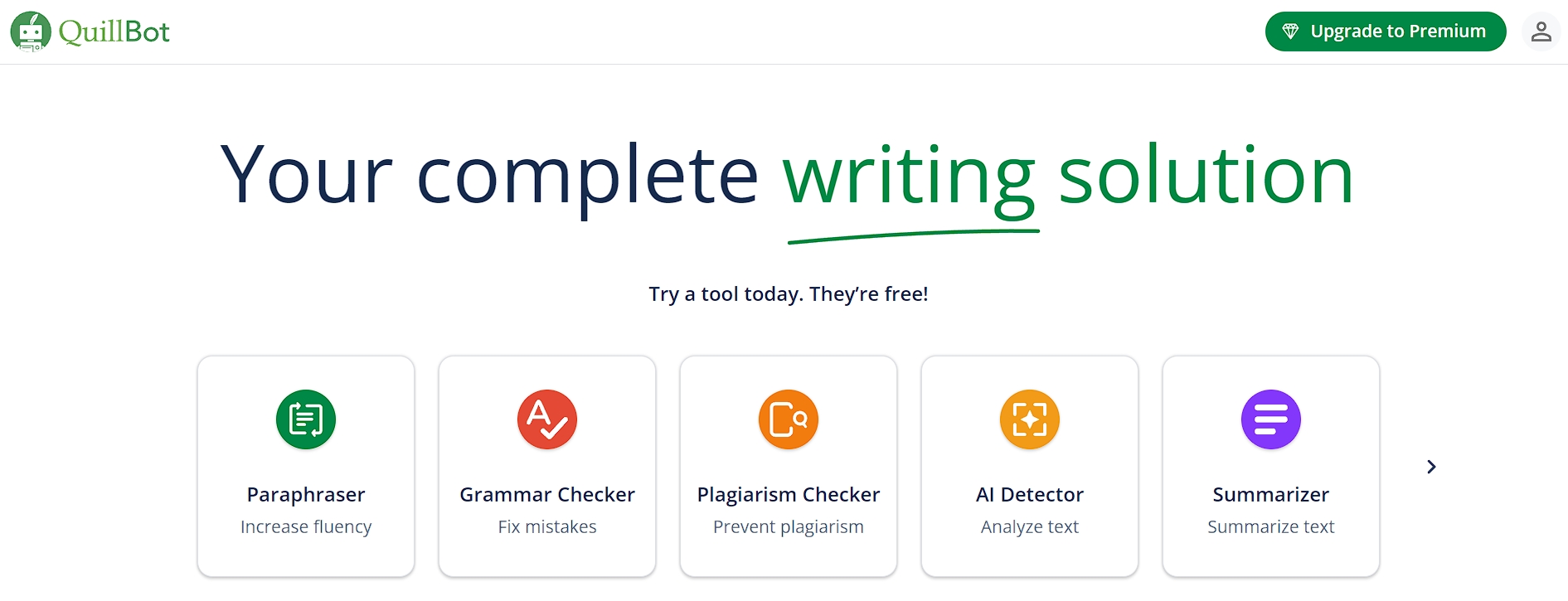
Ever struggled to rephrase complex academic text without losing meaning?
QuillBot helps you rewrite text in different styles while keeping the original message.
Key Features:
- Smart Paraphrasing — 7 writing modes
- Grammar Check — Catches errors
- Citation Maker — Multiple styles
- Text Summarizer — Quick overviews
- Word Extension — Easy access
- Co-writer — Team writing
Pricing:
Free Plan:
- Basic paraphrasing
- Limited words
- Simple grammar check
Premium ($4.17/month annually):
- All writing modes
- Unlimited words
- Full features
What’s Great:
- Easy interface
- Multiple styles
- Quick results
- Grammar help
- Citation support
Watch Out For:
- Free limits
- Oversimplification risk
- Not standalone tool
Bottom Line: QuillBot is perfect for polishing your writing. While it won’t write your paper, it’ll help make your writing clearer and more professional.
Remember: Always review QuillBot’s suggestions – it’s a helper, not a replacement for your expertise.
ResearchRabbit — Your Research Paper Explorer
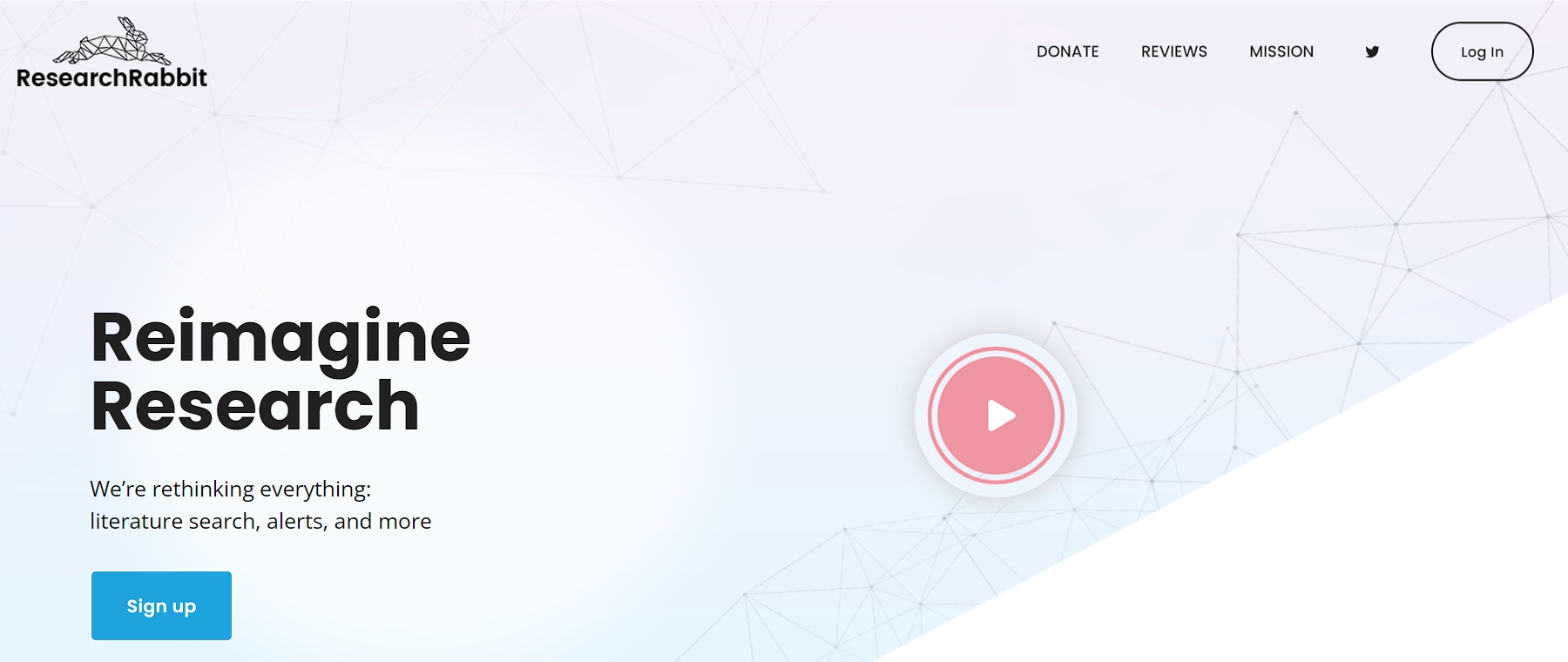
ResearchRabbit — a tool that will change how you’ll discover research papers.
Ever felt lost trying to find connected research papers?
ResearchRabbit maps paper connections visually, showing you the whole research landscape.
Key Features:
- Visual Maps — Shows paper connections
- Smart Suggestions — Recommends papers
- Paper Tracking — Updates on new research
- Team Sharing — Enables collaboration
- Custom Tags — Organizes papers
- Email Alerts — Notifies about new papers
Pricing:
- Completely Free
What’s Great:
- Visual learning
- Smart recommendations
- Easy sharing
- Free access
- Regular updates
Watch Out For:
- Learning curve
- Niche topic limits
- Database coverage
Bottom Line: ResearchRabbit is perfect for exploring research connections. While it won’t write your paper, it’ll help you find all the right sources.
Scite.ai — Your Citation Intelligence Tool
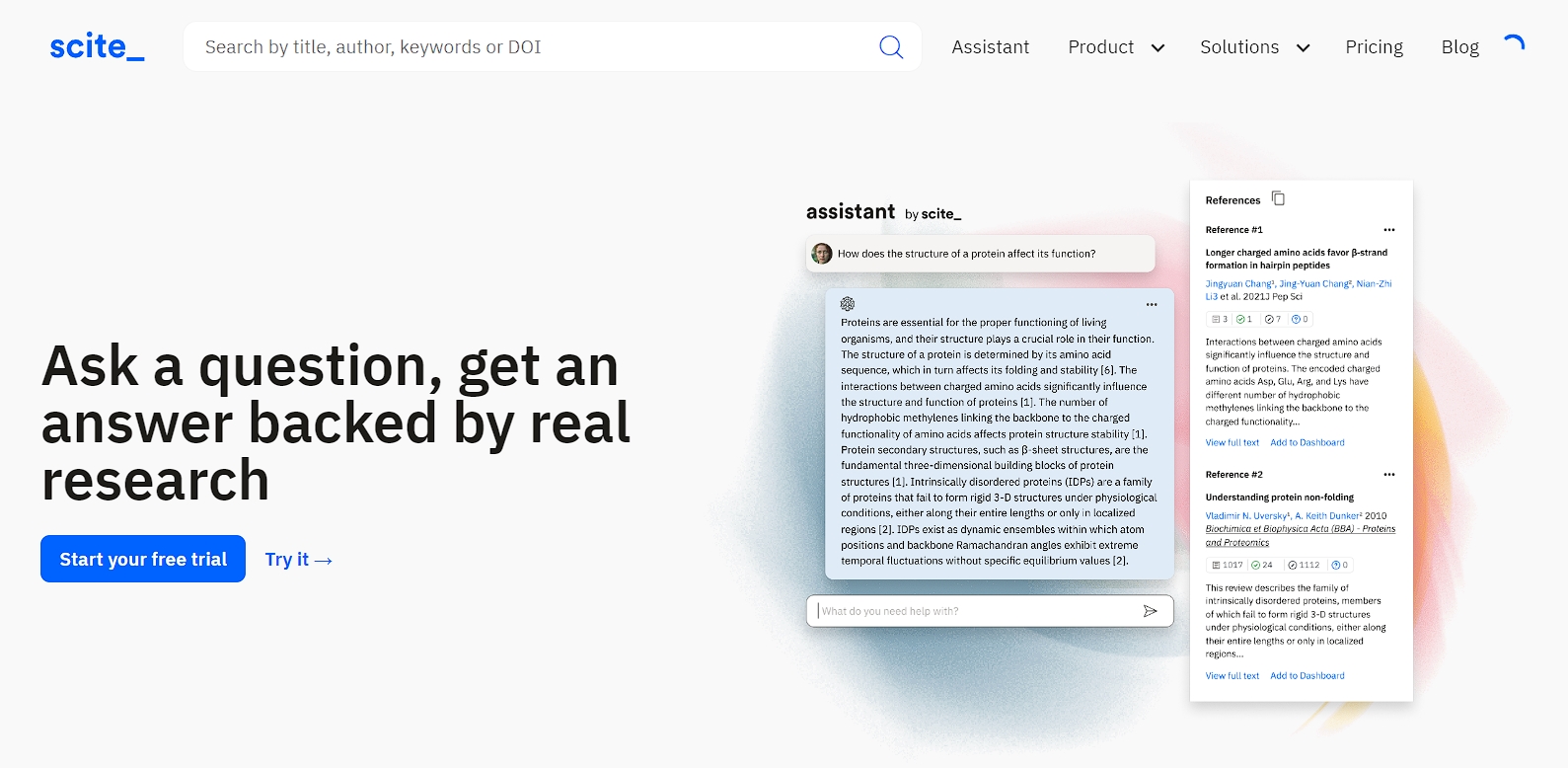
Scite.ai — a tool that revolutionized how I evaluate research papers.
Ever wondered if a paper’s findings are widely supported or contested?
Scite.ai shows you how other researchers cite and discuss papers.
Key Features:
- Smart Citations – Shows context
- Citation Analysis – Support/contradict
- Paper Tracking – Updates on citations
- Browser Extension – Quick access
- Search Tools – Finds papers
- Custom Alerts – Tracks topics
Pricing:
Free Plan:
- Basic features
- Limited searches
- Citation checking
Premium:
- Full features
- Unlimited access
- Advanced tools
What’s Great:
- Deep insights
- Context-rich
- Easy tracking
- Clear analysis
- Quick results
Watch Out For:
- New paper limits
- Learning curve
- Premium costs
Bottom Line: Scite.ai helps you make informed decisions about which papers to cite. It’s like having a research quality checker.
ProofHub — Your Research Team Organizer
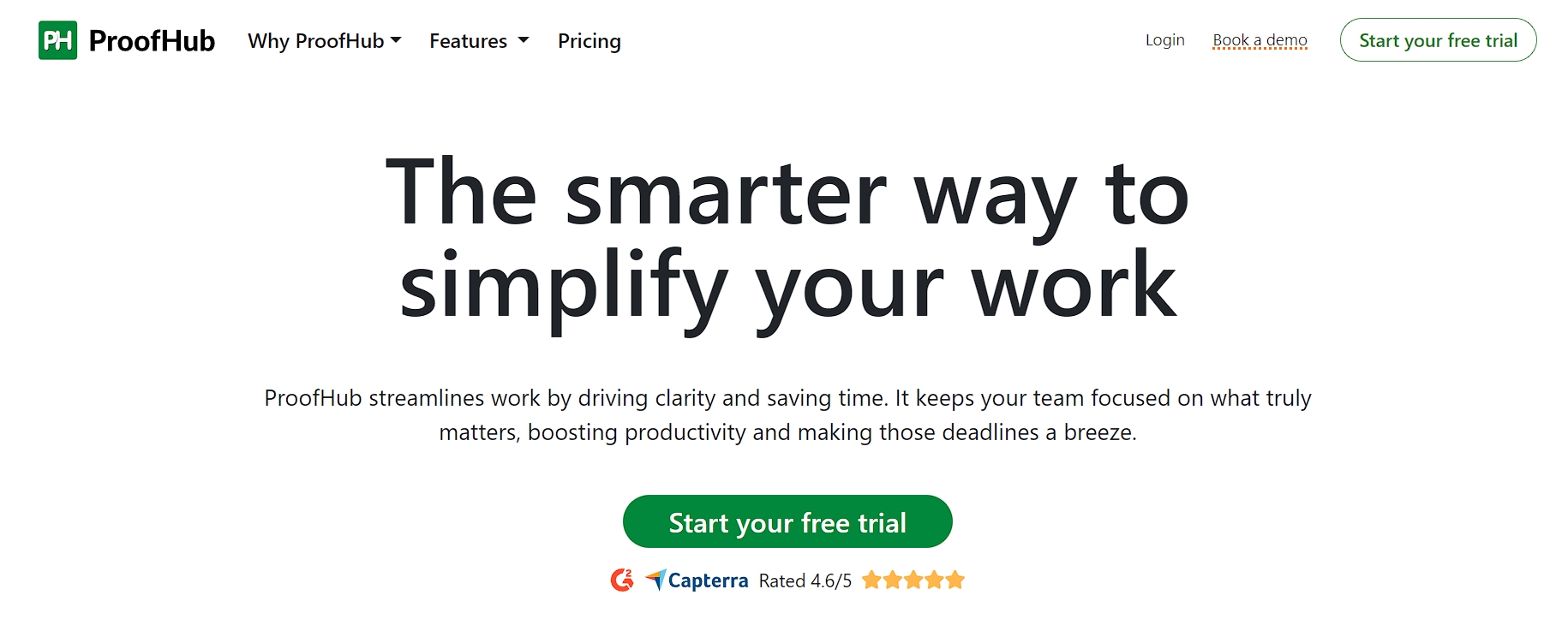
Struggling to keep your research team organized and on track?
ProofHub brings everything together — tasks, files, discussions, and deadlines.
Key Features:
- Task Manager — Assigns work
- File Sharing — Stores documents
- Team Chat — Quick communication
- Time Tracker — Monitors progress
- Gantt Charts — Visual planning
- Review Tools — Easy feedback
Pricing:
Small Team ($79/month annually):
- 10 users
- 40 projects
- 10GB storage
Large Team ($139/month annually):
- 100 users
- Unlimited projects
- 100GB storage
What’s Great:
- Easy organization
- Clear communication
- Simple sharing
- Quick reviews
- Progress tracking
Watch Out For:
- Learning curve
- Feature overload
- Monthly costs
Bottom Line: While it won’t write your paper, ProofHub keeps your research team organized and efficient.
ChatGPT — Your AI Research Assistant
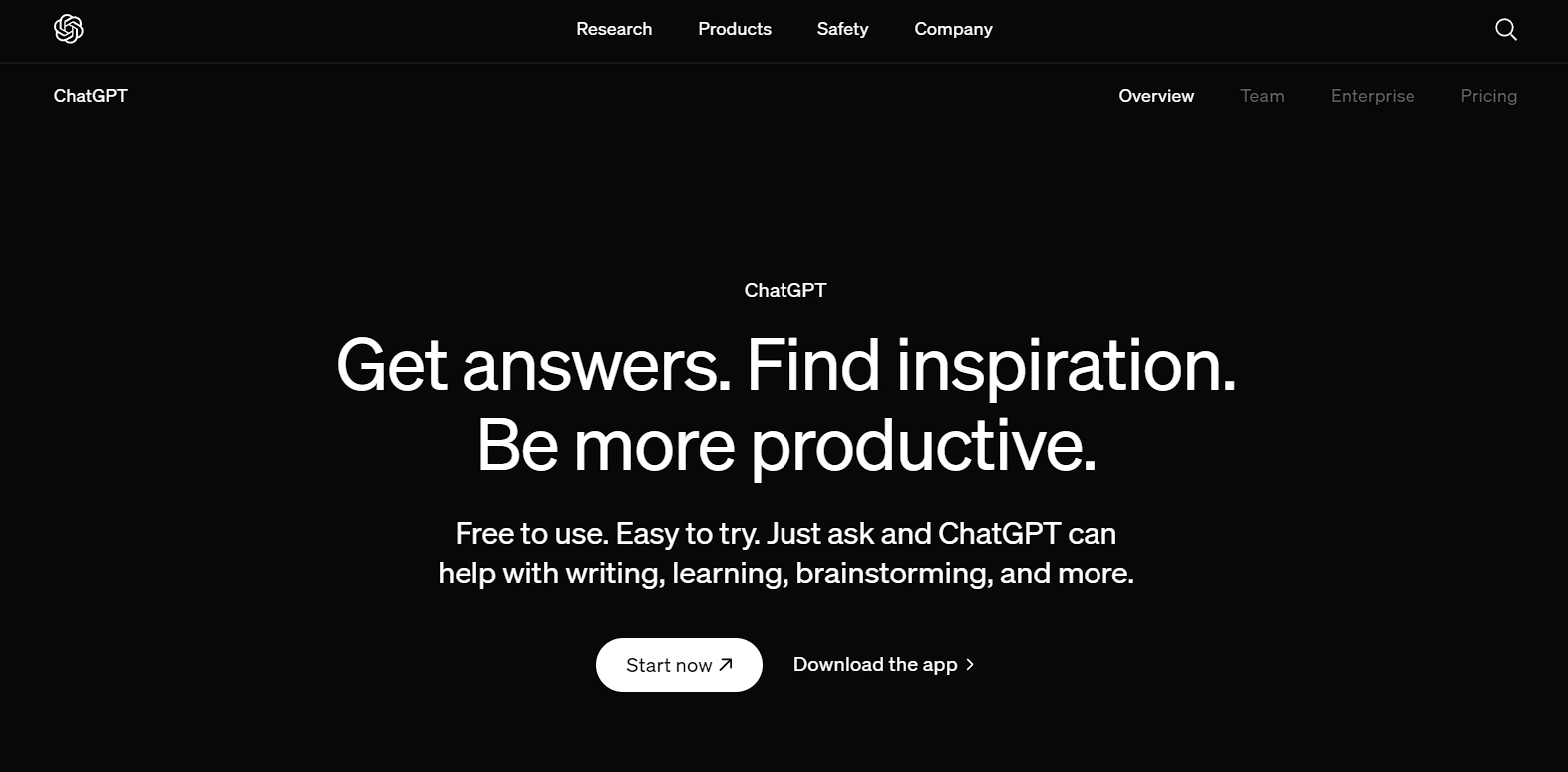
ChatGPT is not a good option for writing research papers. We already have a comparison article on it, so we won’t get into details here. You can check the comparison here: Blainy vs. ChatGPT
But then why am I adding it to this list of best AI tools for research paper writing?
As I said, it’s not a good option for writing, I never said it’s not a good AI tool for other research tasks.
ChatGPT is great to brainstorm ideas, create outlines, and explain complex topics simply.
While doing research, you’ll most likely come up with theories, terminologies, variables you don’t understand. That’s where ChatGPT shines.
You can ask it about specific questions you have. Definitions, you want to know, and so on.
Key Features:
- Idea Generation — Sparks creativity
- Paper Outlining — Structures content
- Concept Explanation — Simplifies topics
- Language Help — Improves clarity
- Quick Answers — 24/7 support
- Multi-language — Global reach
Pricing:
Free Version:
- Basic features
- Standard access
Plus ($20/month):
- Faster responses
- Priority access
- Advanced features
What’s Great:
- Quick help
- Clear explanations
- Fresh perspectives
- Always available
- Easy conversations
Watch Out For:
- Fact checking needed
- No direct citations
- Outdated info risk
- Plagiarism concerns
Bottom Line: Use ChatGPT as a brainstorming partner and writing assistant, but always verify information.
Remember: ChatGPT is a helper, not a researcher. Double-check its suggestions.
Benefits of Using AI Tools for Research Papers
Wonder how AI can make your research easier?
AI tools save time, improve quality, and boost productivity in amazing ways.
Top Benefits I’ve Experienced:
Time-Saving Magic:
- Faster literature reviews
- Quick data analysis
- Automated citations
- Instant grammar checks
Quality Boost:
- Better writing clarity
- Reduced errors
- Consistent style
- Smart suggestions
Research Power:
- Deep insights
- Pattern finding
- Fresh perspectives
- Cross-field connections
Productivity Jump:
- Streamlined workflow
- Easy collaboration
- Quick formatting
- Real-time feedback
Learning Benefits:
- Constant improvement
- New research angles
- Skills development
- Knowledge updates
Watch Out For:
- Over-dependence risk
- Accuracy checks needed
- Learning curves
- Tool limitations
Pro Tip: Combine different AI tools for maximum benefit. I use Blainy for writing, ResearchRabbit for discovery, and Scite.ai for verification.
Bottom Line:
AI tools are game-changers, but remember — they’re assistants, not replacements.
Remember: Always verify AI outputs and maintain your critical thinking.
These tools can change your research life. They can handle the tedious stuff while you focus on what matters — original thinking and analysis.







